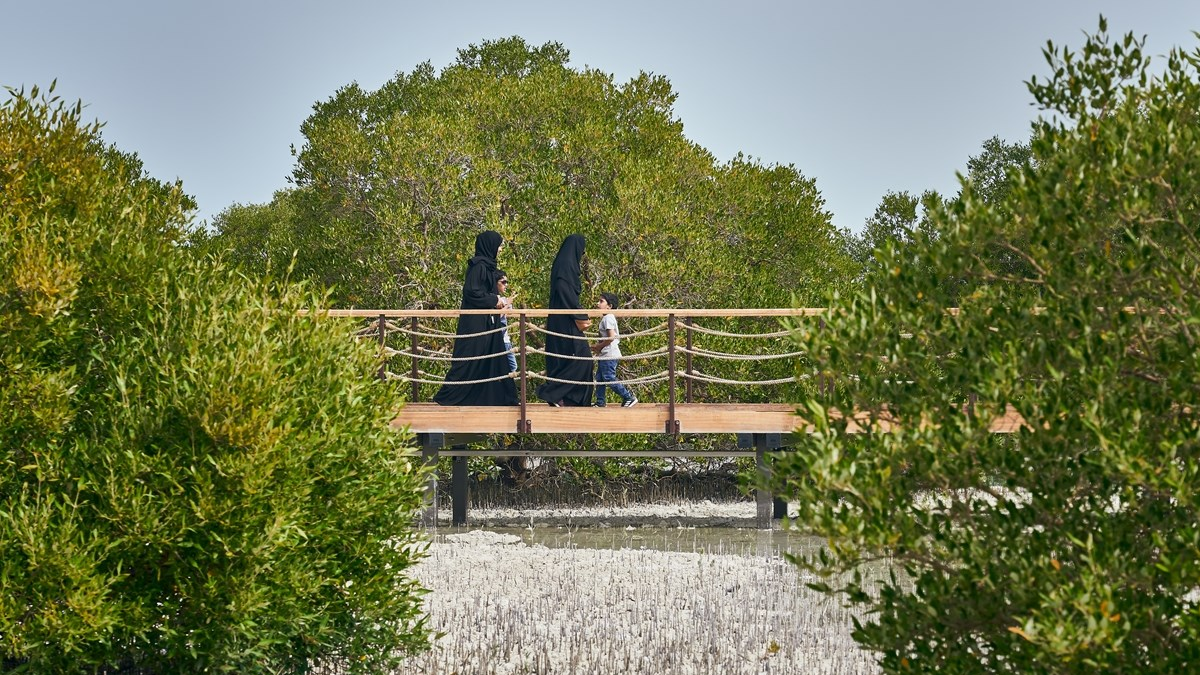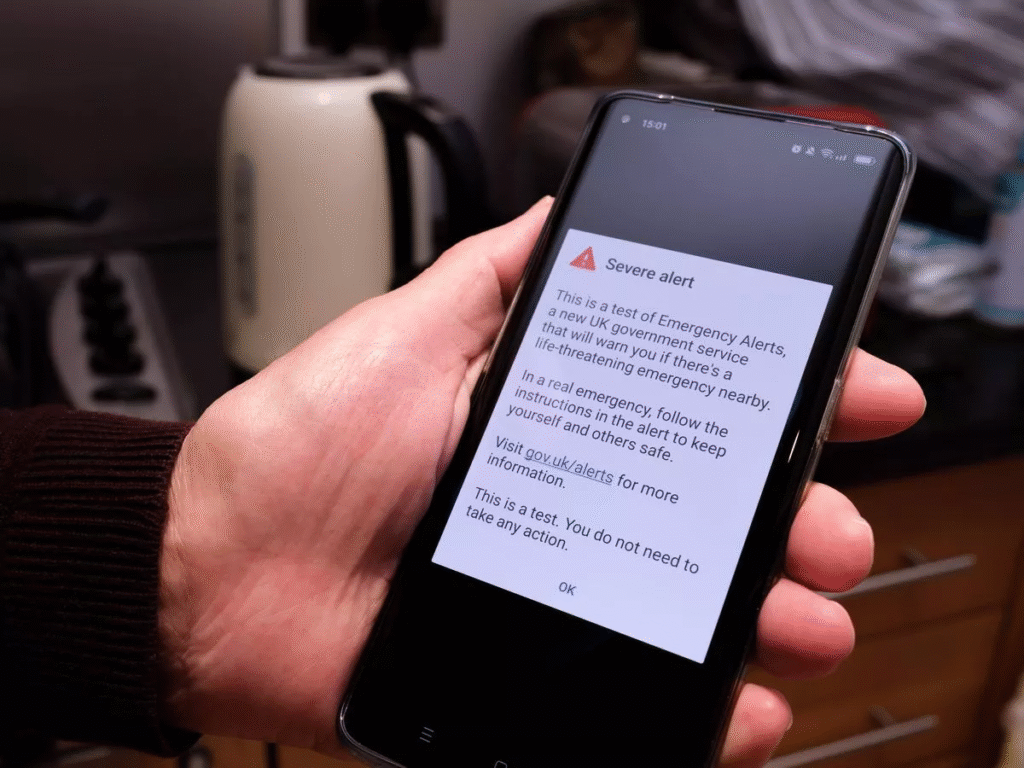Now Reading: Loud Alerts Shock UAE Residents During Emergency Broadcast Test 2025
-
01
Loud Alerts Shock UAE Residents During Emergency Broadcast Test 2025
Loud Alerts Shock UAE Residents During Emergency Broadcast Test 2025

Table of Contents
United Arab Emirates, July 2025 — Many residents across the UAE were startled this week as their phones suddenly buzzed and rang with loud alarms during a government-led emergency broadcast test. The test was part of a planned exercise to trial the UAE’s national Cell Broadcast Alert System, designed to warn people in case of emergencies like floods, fires, or security threats.
The tests took place on [insert recent date, e.g., June 30, 2025], in coordination with the National Emergency Crisis and Disasters Management Authority (NCEMA) and local telecom operators Etisalat and du. The system, known as a cell broadcast, sends messages to every compatible mobile device in a defined geographic area — instantly reaching millions of people with critical safety information.
Authorities stressed that no action was needed from the public during this test, and that the purpose was to ensure the system works reliably if a real crisis happens.
What Happened During the UAE Cell Broadcast Test?

Shortly after [test time, e.g., 10:00 am local time], phones across the Emirates suddenly displayed a flashing warning message in Arabic and English. A loud alarm tone accompanied the message, which read something like:
“This is a test of the UAE Emergency Alert System. No action required.”
The notification then automatically cleared from most devices after a few seconds, leaving many residents surprised — and in some cases, confused — about what exactly had happened.
According to officials, this was an intentional exercise meant to assess how quickly and widely the alerts could reach people across the country.
Why Is UAE Testing Cell Broadcast Alerts?
The UAE has faced challenges in the past with sudden emergencies, including flash floods, fires in high-rise towers, and sandstorms that disrupt transport. Authorities want to make sure everyone can get life-saving information as quickly as possible, no matter where they are.
Unlike SMS messages, which can become delayed if networks are congested, cell broadcast technology sends the alert instantly to all phones connected to nearby cell towers. There is no need to register or subscribe — if you have a mobile phone with a UAE SIM, you will automatically receive these alerts.
Experts say this technology can save lives by:
Warning people about incoming floods or storms
Providing evacuation instructions during fires or earthquakes
Alerting the public about security threats
Guiding people to safety in large gatherings
How Residents Reacted to the Test
After the alerts were sent out, many UAE residents took to social media to share videos of their phones buzzing loudly, sometimes scaring children or startling people at work.
Some praised the government for taking emergency preparedness seriously, while others felt the alarm sound was too loud or even frightening.
Fatima Al Shamsi, a resident of Dubai, told local media:
“At first I thought it was a real emergency, and my heart was racing. But when I saw it was a test, I felt relieved — and I’m glad they are making sure the system works.”
Officials responded by thanking the public for their cooperation and understanding, explaining that the loud tone is meant to get immediate attention, even if your phone is on silent mode.
What Should You Do in a Real Emergency Alert?
During a real emergency, the same system would be used to give you critical instructions. Officials urge everyone to:
Stay calm and read the entire alert message
Follow any advice given, such as evacuating or sheltering in place
Do not call emergency hotlines to ask about the alert, unless you have an actual emergency
Share the information with others around you, especially those who may not have phones
The National Emergency Crisis and Disasters Management Authority (NCEMA) said future tests will be carried out regularly, and the public will usually be notified in advance so people are not unnecessarily alarmed.
What’s Next for the UAE’s Emergency Alert System?
The cell broadcast system is just one part of the UAE’s wider emergency preparedness plan. Other tools include sirens, radio, social media, and even drones that can broadcast messages in remote areas.
The UAE has been investing heavily in emergency readiness, especially after record-breaking floods in the Gulf region in recent years.
According to NCEMA, the next phases of the project will include:
Expanding language options beyond Arabic and English to serve all communities
Testing in more remote desert and mountain areas
Training public safety officials to respond faster
Educating residents on how to act during different emergencies
Telecom regulators say these efforts will help protect both citizens and the millions of tourists who visit the UAE each year.
How to Stay Informed

If you missed this test, you don’t need to worry. Your phone will automatically receive future alerts if it is connected to a UAE mobile network.
Authorities recommend:
Keeping your phone software updated
Not disabling emergency alerts in your phone settings
Following NCEMA and your local government’s social media for official updates
NCEMA’s official website and the UAE Government Portal will continue to post details about upcoming tests and safety measures.
Final Thoughts
While the loud alarm may have shocked many people at first, experts agree that these tests are critical. In a country that faces the risk of natural disasters and large public events, being able to reach everyone instantly could save thousands of lives.
The UAE’s commitment to modern emergency technology shows how serious it is about keeping residents and visitors safe. As more tests roll out in the coming months, authorities encourage everyone to treat these alerts seriously — but also to remember that they are there to help, not to scare.
For further details, residents can visit [NCEMA’s website link, if known] or contact their local municipality.
Read More:- Deyaar’s Latest Announcement Shakes Up the UAE Property Market






















